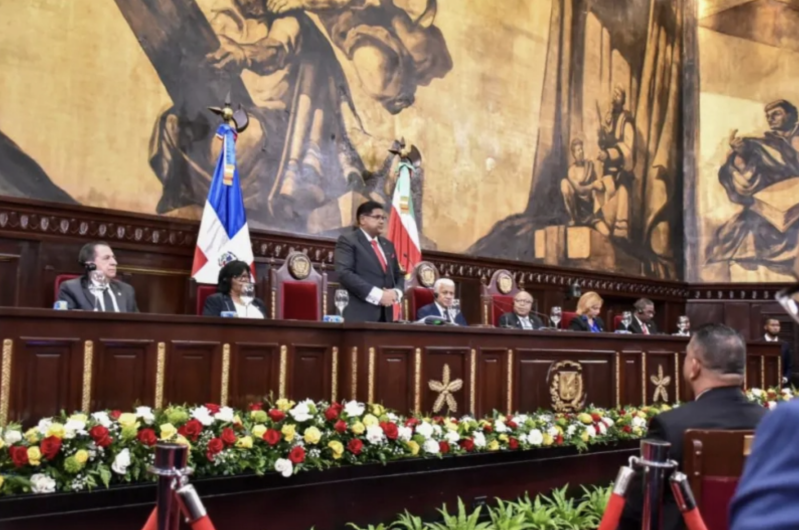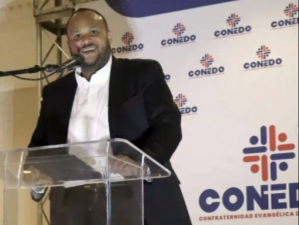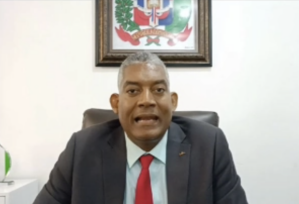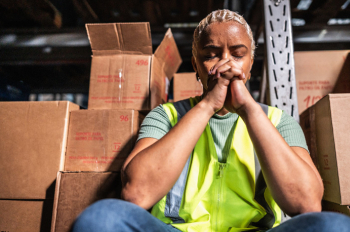
On May 19, general elections will be held in the Dominican Republic where the current president Luis Abinader, the former president Leonel Fernández, and Santiago mayor Abel Martínez are competing for the National Palace.
Yet, the election is not only about the presidential office, but also the legislative positions of deputies and senators. A few days ago, the Archdiocese of Santo Domingo issued a document titled "Candidates in favor of life and family values", in which it detailed a list of 122 legislative candidates belonging to the major parties who are openly pro-life, and urged that they be elected to assume positions in Congress.
Among the listed candidates, 50 belong to the Partido Revolucionario Moderno (Modern Revolutionary Party, PRM), 32 to the Partido de la Liberación Dominicana (Dominican Liberation Party, PLD), 26 to the Fuerza del Pueblo (People's Force, FP), 6 are from the Partido Revolucionario Dominicano (Dominican Revolutionary Party, PRD); 6 from the Partido Reformista Social Cristiano (Social Christian Reformist Party) and 2 candidates from Generación de Servidores (Generation of Servants). The document includes photographs and party data of the selected candidates, as well as detailed information on the local parishes and their staff, as reported Listin Diario.
Manuel Ruiz, secretary of the Life Commission of the Episcopal Conference, and his team have mapped the candidates according to pastoral zones, seeking to let each parish know about the pro-life candidates in their territory. After identifying their allies and opponents, the Catholic Church plans to promote prayer and encourage parishioners to vote in favor of the chosen candidates. Ruiz noted, however, that "it was a draft that had been sent to the priests' and bishops' private chat for correction, and that an incomplete one was leaked."
"We want to say that if those who do not think like us, who are pro-abortion, who believe in same-sex marriage, we respect them. We are exercising our right to do this because the Church does not live on the moon, the Church lives on earth and is the institution that has the greatest presence in this country," Ruiz said.
A number of legislators and leaders within the evangelical church reacted to the call of the Catholic Church to vote for the candidates who are against abortion. The deputy of the Modern Revolutionary Party (PRM), Amado Diaz, who is on the list of those favored by the Catholic Church, said that he is a person committed to life. "I am pro-life by nature, and I am against the type of modernism that they want to implement in all settings, including in Congress," said Diaz.
In addition, the congressman and candidate assured that being pro-life "is something we believe in, it is something we practice. We are grateful that the [Catholic] church takes us into account and if it helps us by voting for us, even better."

To find out what evangelicals are thinking about the list, Diario Cristiano, Christian Daily International’s Spanish edition, spoke with Jorge Duarte, president of the Confraternidad Evangélica Dominicana (Dominican Evangelical Fellowship, CONEDO), one of the institutions that brings together churches and Christian ministries in the Dominican Republic.
He commented that "although we are not used to give our parishioners directions in the sense of voting in favor of any party or candidate, we do make an effort to create citizen awareness so that when it’s time to vote, we do it well."
He added that they are inviting people to vote "thinking of the good of the nation first and foremost, and to bring those people to positions of authority who are coherent with the Christian values that we practice and that are part of our Dominican identity."
Duarte referred to an online platform called Vota Bien (Vote Well) that was created by a group of Christians where they evaluate candidates according to their capabilities, political references, public performances, and commitments as officials.
"In that sense, we see what the Catholic Church has done as something favorable. In fact, we evangelicals are making use of a platform created by a team of believers, who have done a wonderful job to create the website Votabien.org, which has the largest compendium of candidates in favor of our values in the country," he said.
Regarding whether only evangelical candidates are featured, Pastor Duarte indicated that "not only evangelicals were listed, but also those who are not evangelicals but still support our values."

Pastor Feliciano Lacen, president of the Consejo Dominicano de Unidad Evangélica (Dominican Council of Evangelical Unity, CODUE), stated in a video published by El Nuevo Diario that "we [evangelicals] do not have a list per se. However, this list that has already been published coincides with everything that we have been working on all year with our faith community. We have been talking and making the leaders of the evangelical community aware that it is no longer enough to vote for tradition, nor for colors. But for people with principles and proven ethics and morals."
Lacen also said that they know "the deputies or legislators who are committed, not to the faith community but to the Dominican Republic and to life. But we are also very clear about those legislators who have given themselves the task of being spokespersons for a global agenda that is lobbying in all countries and that wants to compromise the principles, the family, morals, ethics and the life of our citizens."
Additionally, he said he understands that there are challenges to face as a Church highlighting that a great concern is "the diabolical agenda that comes to establish a culture of death."
Meanwhile, the presidential candidates discuss issues related to "the continuity of change", as in the case of the current president of the Republic, Luis Abinader. The president also discusses "the construction of the border wall" with Haiti.
Abel Martinez agrees with the president and talks about his plan to reduce the presence of Haitians in the Dominican Republic. Finally, former President Leonel Fernandez talks about the cost-of-living issue and citizen insecurity. He frequently compares the cost of a basic food basket during his term in office with the cost of the basic food basket today, 12 years later.
What direction the country will take remains to be seen as citizens head for the polls at the end of next week.
Originally published in Spanish on Diario Cristiano.





